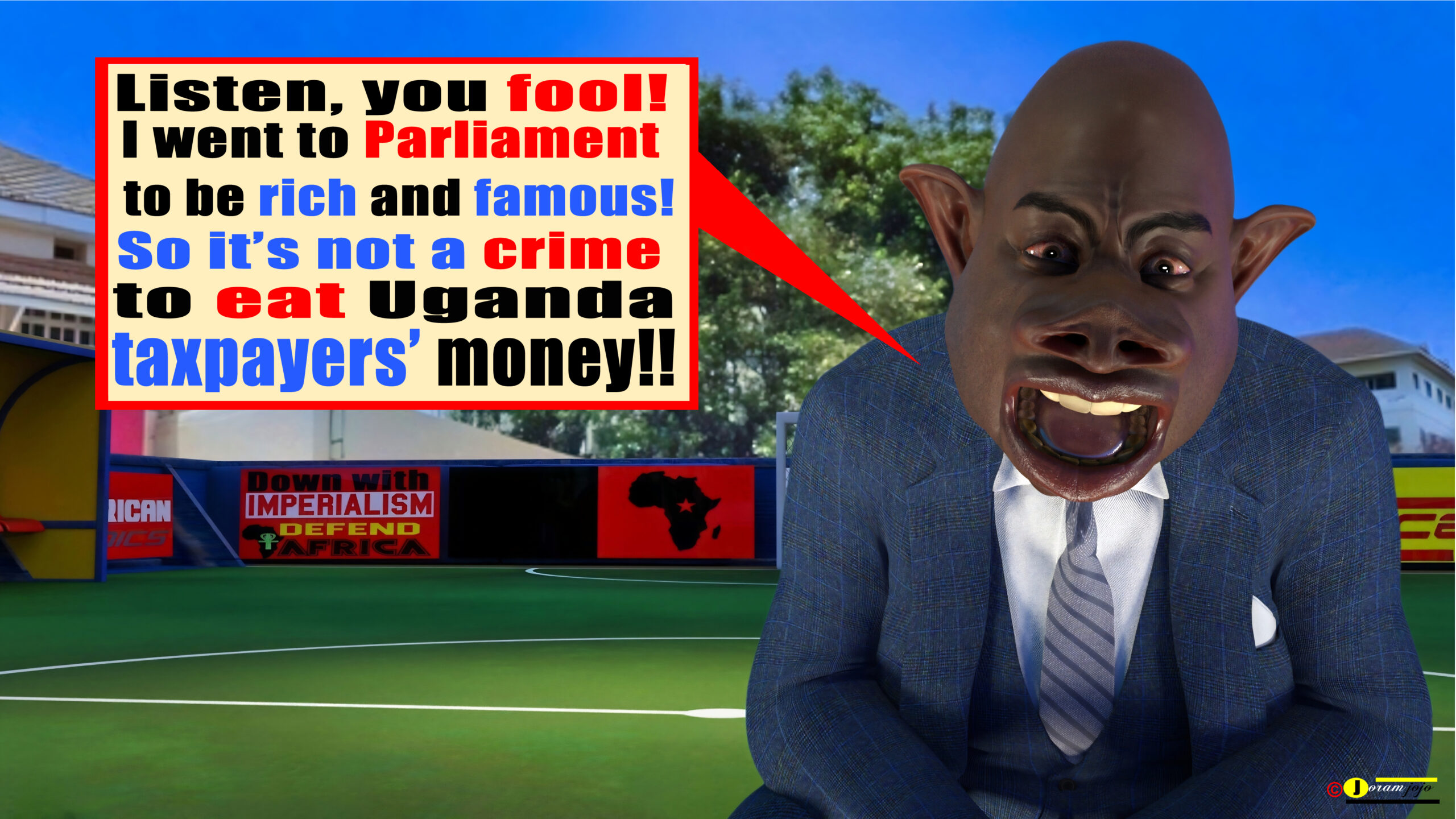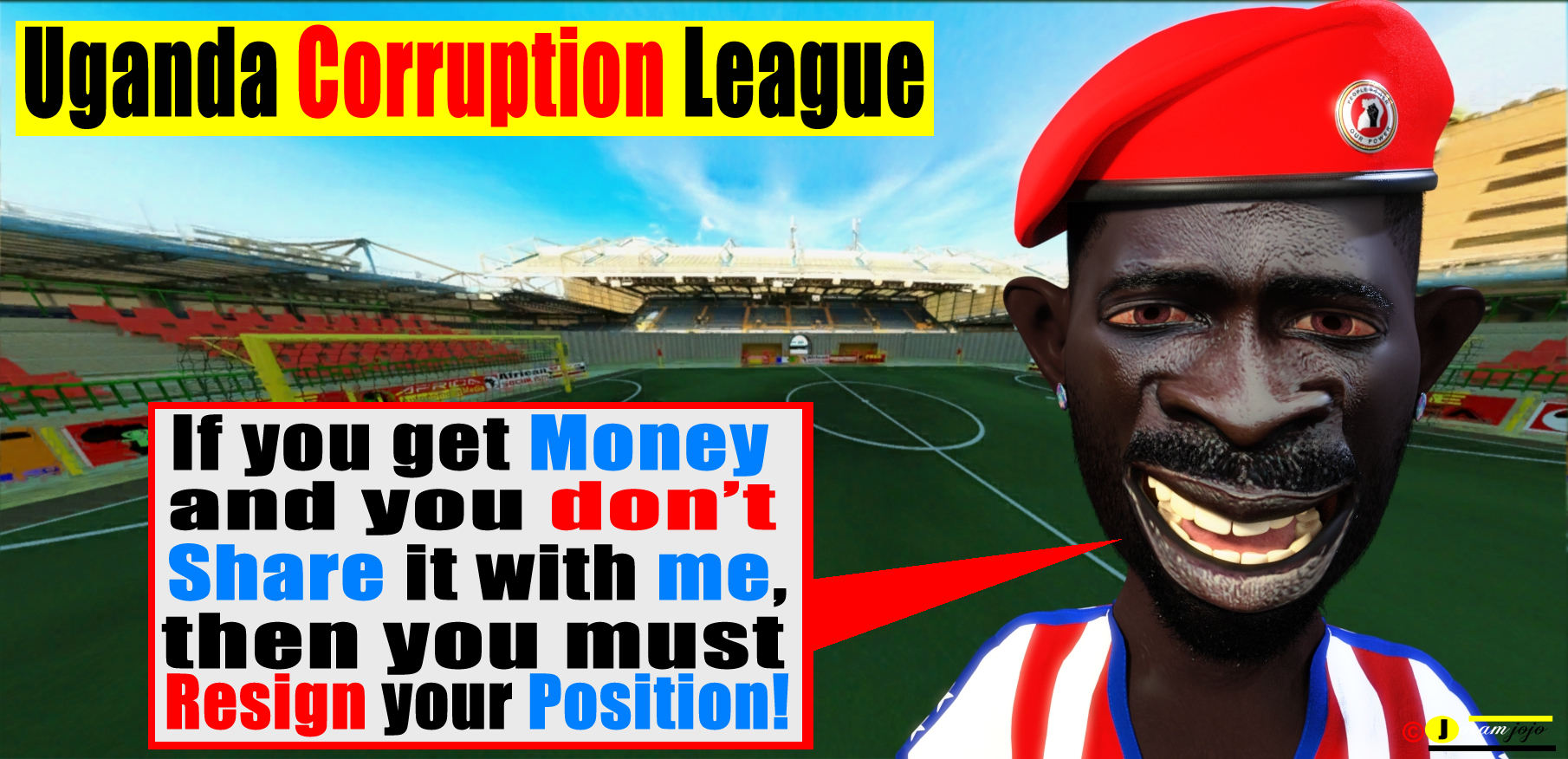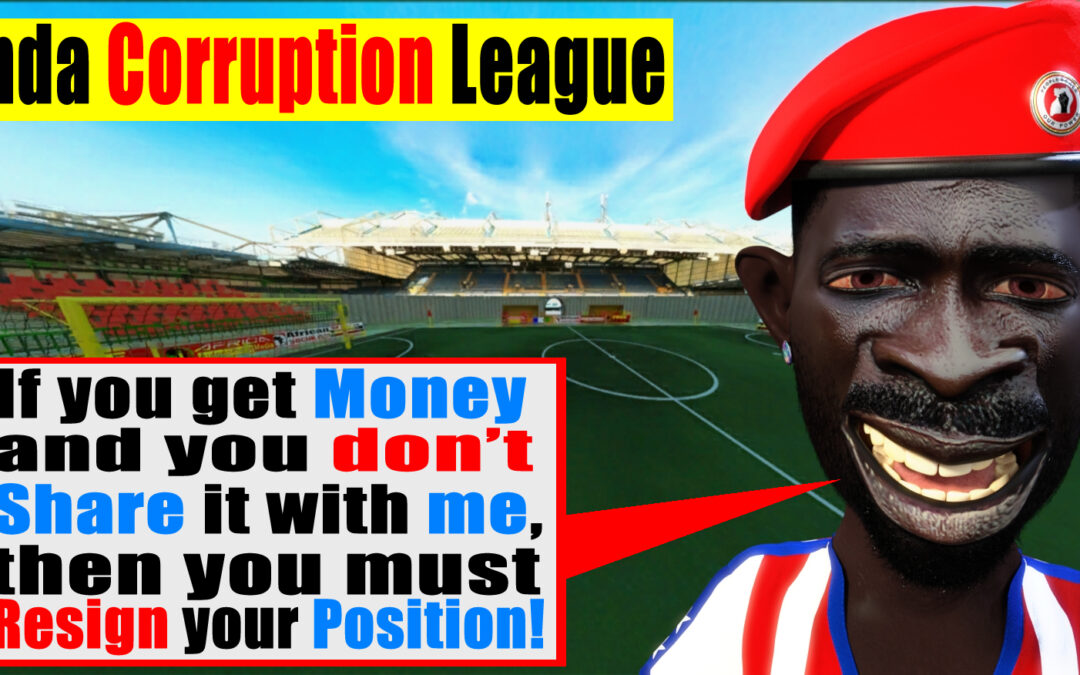The embattled Nyendo-Mukungwe MP and Speaker of Parliament, Mathias Mpuuga, has made shocking allegations against the leadership of the National Unity Platform (NUP). He has accused them of lacking impartiality in handling internal disputes and of sexually abusing young party members.
Mpuuga’s bombshell allegation of sexual harassment by top NUP leaders comes at a time of intense internal power struggles within the party.
These are threatening the fortunes of the country’s largest opposition political party as it prepares for the 2026 general elections. In a letter addressed to NUP deputy chairperson for the northern region, Dr Lina Zedriga, Mpuuga raised concerns about financial mismanagement, sexual harassment of young people by top party leaders and widespread indiscipline among party supporters. He also accused top party leaders of supporting efforts to malign and vilify anyone who disagrees with their methods.

These allegations have sent shockwaves through the political landscape and raised serious questions about the integrity and leadership of the NUP. The party, which was seen as a beacon of hope for many Ugandans seeking change, is now facing a crisis that could have far-reaching implications for its future. The gravity of Mpuuga’s allegations cannot be overstated.
Allegations of sexual assault and misconduct by top party leaders have the potential not only to tarnish the NUP’s reputation, but also to undermine the confidence of its supporters. The party’s ability to present a united front and offer a credible alternative to the ruling party in the forthcoming elections is now in jeopardy. The NUP leadership must address these allegations with the utmost seriousness and transparency. Failure to do so could have devastating consequences for the party and its public standing. It is imperative that a thorough and independent investigation is carried out to establish the veracity of these allegations and hold any wrongdoers to account.
The NUP must also take immediate steps to address the internal power struggles and disputes that have contributed to this crisis. The party’s leadership must demonstrate its commitment to upholding the values of integrity, accountability and respect for all members, especially the young and vulnerable. The future of the NUP and its ability to effectively challenge the ruling party in the 2026 general election depends on how it responds to these challenges.
The party must show that it is capable of dealing with internal conflicts, holding its leaders to account and prioritising the welfare and safety of its members. The allegations made by Mathias Mpuuga against the NUP leadership are deeply disturbing and require immediate and decisive action. The party’s response to these allegations will be a defining moment in its history and will determine its future course. The NUP must demonstrate its commitment to transparency, accountability and the welfare of its members if it is to regain the trust of the Ugandan people.
Mpuuga’s Response to NUP’s National Executive Committee Resolution
In response to the resolution passed by the National Executive Committee of the National Unity Platform (NUP) on March 15, 2024, to recall him from the Parliamentary Commission due to allegations of corruption, dishonesty, and abuse of office, Mathias Mpuuga has spoken out. Mpuuga has shed light on his efforts to address issues of sexual abuse and indiscipline within the party’s leadership, as well as his interactions with NUP’s leader, Robert Kyagulanyi alias Bobi Wine, and the party’s secretariat. Mpuuga’s statement reveals a deep concern for the integrity and ethical conduct within the party.
He has expressed his disappointment in the lack of interest shown by the leadership in addressing the serious issues he raised. This revelation has sparked a new wave of controversy within NUP and has raised questions about the party’s commitment to transparency and accountability. Mpuuga’s assertion that he raised concerns about sexual abuse and indiscipline within the party’s upper ranks with Bobi Wine and the secretariat, only to be met with disinterest, has sent shockwaves through the political landscape. It has brought to the forefront the need for a thorough investigation into the allegations and a re-evaluation of the party’s leadership and internal mechanisms.
The allegations of corruption, dishonesty, and abuse of office against Mpuuga have cast a shadow over his tenure in the Parliamentary Commission. However, his willingness to speak out against the party’s leadership and his commitment to addressing issues of misconduct demonstrate a sense of moral responsibility and a dedication to upholding ethical standards. The resolution to recall Mpuuga from the Parliamentary Commission has ignited a fierce debate within NUP and has raised concerns about the party’s internal governance and decision-making processes. It has also prompted calls for greater transparency and accountability within the party, as well as a re-examination of the allegations against Mpuuga.
As the controversy continues to unfold, it is imperative for NUP to address the allegations of corruption, dishonesty, and abuse of office in a transparent and impartial manner. The party’s response to these allegations will not only shape its internal dynamics but also impact its public image and credibility. Mpuuga’s response to the resolution passed by NUP’s National Executive Committee has brought to light critical issues of ethical conduct and leadership accountability within the party.
The allegations of corruption, dishonesty, and abuse of office, as well as the concerns raised by Mpuuga regarding sexual abuse and indiscipline, demand a thorough and impartial investigation. NUP’s ability to address these issues transparently and decisively will be a litmus test of its commitment to upholding ethical standards and fostering a culture of accountability.
NUP Warned of Internal Disagreements by Buganda Kingdom’s Prime Minister
The lawmaker also told Zedriga about the growing culture in the party to “muzzle dissent.” Buganda Kingdom’s Prime Minister, Charles Peter Mayiga, recently issued a stern warning to the National Unity Platform (NUP), cautioning them about the potential challenges they may face if they fail to resolve their internal disagreements amicably. In a candid conversation, Mayiga emphasized the importance of patience and mutual respect within the party. He stressed, “You have to learn to be patient and respect one another.
You have to learn all these things while you are still in opposition because if you don’t, what will happen when you take power? Will you be approachable?” Mayiga’s remarks shed light on the underlying tensions within NUP and the need for the party to address these issues proactively.
His words serve as a timely reminder for NUP to prioritize internal cohesion and unity, especially as they navigate the complexities of opposition politics. The warning from Buganda Kingdom’s Prime Minister comes at a critical juncture for NUP, as the party grapples with internal rifts and differing perspectives. Mayiga’s counsel underscores the significance of fostering a harmonious and inclusive environment within the party, essential for its long-term success and effectiveness as a political force. As NUP continues to evolve and expand its influence, the guidance provided by Mayiga serves as a valuable insight into the challenges and responsibilities that come with political leadership. His emphasis on the need for patience and respect resonates not only within the context of NUP but also as a broader principle for effective governance and decision-making.
The cautionary message from Buganda Kingdom’s Prime Minister serves as a call to action for NUP to prioritize internal reconciliation and constructive dialogue. By heeding Mayiga’s advice, NUP can fortify its foundation and enhance its capacity to navigate the intricacies of political power, both in opposition and potentially in government. Buganda Kingdom’s Prime Minister, Charles Peter Mayiga, has delivered a timely and pertinent warning to NUP, urging the party to address its internal disagreements with diligence and maturity. His counsel underscores the imperative of fostering unity and mutual respect within the party, essential for its resilience and effectiveness in the political arena. As NUP charts its course, Mayiga’s words serve as a guiding beacon, illuminating the path towards internal harmony and collective strength.
The Importance of Accountability and Fairness: Lessons from Buganda’s Katikkiro
In a recent statement, emphasized the significance of compassion and fairness, stating, “Not all who make mistakes deserve to be killed. I am your elder as the Katikkiro of Buganda, and I have to teach you this.” These words hold great wisdom, reminding us of the importance of understanding and forgiveness in our society. However, recent allegations against Mathias Mpuuga, a prominent figure in the National Unity Platform (NUP), have raised concerns about corruption and abuse of office. This article aims to shed light on the accusations and explore the need for accountability and transparency in leadership. T
he Allegations:
Mpuuga, along with the NRM Parliamentary Commissioners, has been accused of engaging in acts of corruption and abuse of office. It is alleged that they irregularly allocated themselves a staggering 1.7 billion shillings as “service awards” during Mpuuga’s tenure as the Leader of the Opposition in the House. Out of this amount, Mpuuga himself received 500 million shillings. Such allegations, if proven true, raise serious questions about ethical conduct and the misuse of public funds.
Accountability and Transparency:
In any democratic society, accountability and transparency are fundamental pillars of good governance. Leaders are entrusted with the responsibility of serving the public interest and must be held to the highest standards of integrity. The allegations against Mpuuga highlight the urgent need for robust systems that ensure transparency in the allocation and utilization of public funds. It is essential that leaders are held accountable for their actions, regardless of their position or political affiliation.
Lessons from Buganda’s Katikkiro:
The statement made by the Katikkiro of Buganda serves as a reminder that mistakes should not always result in severe consequences. However, it is crucial to distinguish between genuine mistakes and deliberate acts of corruption. While forgiveness and understanding are important, they should not be used as excuses to overlook or condone unethical behaviour. Leaders, especially those in positions of power, must be held to a higher standard and face appropriate consequences for their actions.
The Role of Political Parties:
Political parties play a vital role in shaping the political landscape of a nation. They are responsible for selecting and supporting candidates who will represent the interests of the people. In the case of Mpuuga, as a member of the NUP, the party must address the allegations against him promptly and transparently. It is essential for political parties to demonstrate their commitment to accountability and integrity by taking decisive action against any member found guilty of corruption or abuse of office.
Building Trust and Restoring Faith:
Instances of corruption and abuse of office erode public trust in the political system and its leaders. To restore faith in the system, it is crucial to address these allegations with utmost seriousness and transparency. This includes conducting thorough investigations, ensuring due process, and imposing appropriate penalties if wrongdoing is proven. Additionally, implementing robust mechanisms for financial oversight and accountability can help prevent such incidents in the future.
The allegations against Mathias Mpuuga and the NUP Parliamentary Commissioners raise important questions about accountability and transparency in leadership. While the Katikkiro of Buganda reminds us of the importance of forgiveness, it is crucial to distinguish between genuine mistakes and deliberate acts of corruption. Leaders must be held accountable for their actions, regardless of their position or political affiliation. Political parties have a responsibility to address allegations promptly and transparently, demonstrating their commitment to integrity. By building trust and restoring faith in the system, we can work towards a society where ethical conduct and good governance prevail.
NUP Calls for Accountability: Mpuuga Urged to Return Money, Apologize, and Step Down
The National Unity Platform (NUP) has demanded that Mathias Mpuuga, the former Commissioner of Parliament, take responsibility for his actions. Despite the party’s call for him to return the money, apologize to Ugandans, and step down from his position, Mpuuga has failed to meet these expectations. This article will delve into the details of the NUP’s demands and the subsequent actions taken during the National Executive Committee (NEC) meeting.
Recall of Mpuuga:
The NEC meeting, which was chaired by Dr. Lina Zedriga, the NUP Deputy President for the Northern Region, saw the recall of Mpuuga from his role as Commissioner of Parliament. Dr. Zedriga, acting as the party’s President in the absence of Robert Kyagulanyi Ssentamu, popularly known as Bobi Wine, ensured that the party’s concerns were addressed.
Mpuuga’s Failure to Comply:
Despite the NUP’s clear instructions, Mpuuga has not fulfilled the party’s demands. This failure to take responsibility has raised concerns among party members and the public alike. The NUP’s call for accountability is not only about Mpuuga’s actions but also about upholding the party’s values and principles.
Return of Misappropriated Funds:
One of the primary demands made by the NUP is for Mpuuga to return the money that has been misappropriated. The party believes that this is crucial to maintain transparency and integrity within its ranks. By failing to comply with this demand, Mpuuga is undermining the trust placed in him by the party and the Ugandan people.
Apology to Ugandans:
In addition to returning the misappropriated funds, the NUP has called for Mpuuga to issue a public apology to the Ugandan population. This apology is seen as a necessary step towards rebuilding trust and acknowledging the harm caused by his actions. However, Mpuuga’s refusal to apologize further deepens the divide between him and the party.
Step Down as Commissioner of Parliament:
The final demand made by the NUP is for Mpuuga to step down from his position as Commissioner of Parliament. This decision is not taken lightly, as it reflects the party’s commitment to accountability and ethical conduct. By remaining in his role, Mpuuga is disregarding the party’s authority and the expectations placed upon him.
Party Leadership and Decision-Making:
During the NEC meeting, Dr. Lina Zedriga, as the Acting President, demonstrated strong leadership by chairing the proceedings. Her role in ensuring that the party’s demands were addressed highlights the NUP’s commitment to upholding its principles, even in the absence of its President, Bobi Wine. This display of unity and collective decision-making is a testament to the party’s strength and determination.

The NUP’s call for accountability from Mathias Mpuuga, the former Commissioner of Parliament, remains unanswered. Despite the party’s demands for him to return the misappropriated funds, issue a public apology, and step down from his position, Mpuuga has failed to comply. This failure to take responsibility raises concerns about his commitment to the party’s values and principles. The NUP’s leadership, exemplified by Dr. Lina Zedriga during the NEC meeting, demonstrates the party’s dedication to upholding accountability and ethical conduct. Moving forward, it is crucial for the NUP to address this issue and ensure that its members are held to the highest standards of integrity and transparency.
Mpuuga Expresses Concerns Over Impartiality of NUP NEC
In a recent development, two days prior to an important meeting, Mpuuga, a prominent figure within the National Unity Platform (NUP), expressed his concerns to Zedriga. Mpuuga raised apprehensions about the impartiality of the NUP National Executive Committee (NEC), fearing that he would not receive a fair hearing or a just resolution. This article delves into the details of Mpuuga’s concerns and sheds light on the potential implications for the party.
Mpuuga’s Concerns:
Mpuuga’s letter to Zedriga, which has recently been made public, highlights his concerns regarding the impartiality of the NUP NEC. He points out that the NEC is chaired by the President or any of his assigned deputies. However, Mpuuga notes that both the President and his deputies have already expressed their opinions on the matter of corruption and abuse of office, speaking negatively about him and publicly condemning him. Despite exercising restraint and decency, Mpuuga feels that he has been unfairly targeted. Furthermore, Mpuuga draws attention to the fact that a significant number of NEC members, influenced by Hon. Kyagulanyi, attended a previous informal meeting where negative sentiments were expressed against him. Additionally, some members resorted to castigating videos and reckless outbursts, further exacerbating the situation. These actions have raised doubts in Mpuuga’s mind about the impartiality of the NEC and its ability to provide him with a fair hearing.
Implications for the NUP:
The concerns raised by Mpuuga have significant implications for the NUP as a whole. The party’s credibility and commitment to fairness and justice are at stake. If Mpuuga’s fears materialize and he is denied a fair hearing, it could lead to internal divisions and a loss of trust within the party. This could potentially weaken the NUP’s position and hinder its ability to effectively address the issues it stands for.
The Importance of Impartiality:
Impartiality is a fundamental principle that underpins any democratic organization. It ensures that decisions are made based on merit and fairness, rather than personal biases or external influences. In the case of the NUP NEC, it is crucial for the party to uphold this principle to maintain its integrity and credibility. Failing to do so could have far-reaching consequences, not only for Mpuuga but also for the party’s reputation and future prospects. The Way Forward: To address Mpuuga’s concerns and restore faith in the NUP NEC, it is imperative for the party leadership to take immediate action. Firstly, an independent committee should be formed to investigate the allegations of bias and unfair treatment. This committee should comprise individuals who are not directly involved in the ongoing dispute and have a proven track record of impartiality.

Secondly, the NUP leadership should publicly acknowledge Mpuuga’s concerns and commit to ensuring a fair and transparent process. This includes providing him with an opportunity to present his case, allowing for a thorough examination of the evidence, and ensuring that all decisions are made based on merit and the principles of justice.
The concerns raised by Mpuuga regarding the impartiality of the NUP NEC are of utmost importance. The party’s commitment to fairness and justice is being questioned, and it is crucial for the leadership to address these concerns promptly. Upholding impartiality is not only essential for Mpuuga’s case but also for the overall credibility and reputation of the NUP. By taking decisive action and ensuring a fair hearing, the party can demonstrate its commitment to democratic principles and strengthen its position as a leading political force in the country. “And now the latest practice of transacting party business on social media has helped me pique your fate-accompli approach, ready to execute the instructions of the President regardless of legal capacity. It is clear that your invitation to me is a veiled attempt to put on clothing of fairness that you know is impossible in the current circumstances. I have no trust in a process initiated with no legal foundation, and all the air around it is tainted with bias and unfairness,” he added.
ILLEGALITIES
In a letter to Zedriga, Mpuuga conveyed that despite the NUP nominating him for the position of Commissioner of Parliament, the party did not have the authority to recall him. Mpuuga stated, “You may wish to be informed that the grounds for the removal of backbench commissioners are clearly outlined in the law. The false and/or fabricated accusations hold no weight. Similarly, the forum and procedures for removal are prescribed by law and are outlined in the Parliamentary Rules of Procedure. The intended process by the Party is therefore based on unfounded grounds driven by malicious intent, is detrimental to the foundations of our party, and would contradict the values and aspirations of our people.”
The NUP’s Recall Resolution: A Threat to Democratic Governance
The recent decision by the National Unity Platform (NUP) to recall its commissioner from the Parliamentary Commission has sparked a heated debate. While the party believes it has the authority to recall its nominee, this move has raised concerns about the potential dangers it poses to democratic governance in Uganda. In response to the NUP’s resolution, Speaker of Parliament Anitah Among rejected the party’s claim, emphasizing that the power to elect commissioners lies with Parliament itself. This article delves into the implications of the NUP’s recall resolution and its potential impact on democratic processes in the country.
The NUP’s Recall Resolution:
On March 18, 2024, Party Secretary General David Lewis Rubongoya wrote to Speaker Among, informing her of the NUP’s decision to recall their commissioner from the Parliamentary Commission. This move was seen as an attempt by the party to exercise control over its nominee and assert its authority within the parliamentary system. However, Speaker Among swiftly rejected the resolution, citing legal provisions that limit the role of political parties in the appointment of commissioners.
The Limitations of Political Parties:
According to Speaker Among, the power to elect commissioners rests solely with Parliament, as outlined in Section 2 of the Administration of Parliament, Cap 257, and Rule 11(4) of the Rules of Procedure of the Parliament of the Republic of Uganda. While political parties can nominate candidates for the position, their influence is limited to this initial step. Once nominated, the appointment process falls under the jurisdiction of Parliament itself. This distinction is crucial in maintaining the separation of powers and ensuring the independence of the parliamentary system.
The Danger to Democratic Governance:
The NUP’s attempt to recall its commissioner raises concerns about the potential erosion of democratic governance in Uganda. By asserting their authority to recall a nominee, the party is challenging the established procedures and undermining the principles of separation of powers. This precedent, if allowed to stand, could set a dangerous precedent for future political parties, jeopardizing the integrity of the parliamentary system and the democratic process as a whole.
The Importance of Separation of Powers:
The separation of powers is a fundamental principle of democratic governance. It ensures that no single entity or branch of government can wield excessive power, thereby safeguarding the rights and freedoms of citizens. By attempting to recall its commissioner, the NUP is encroaching upon the powers of Parliament and undermining the delicate balance of power that exists within the system. This not only threatens the independence of the parliamentary commission but also undermines the democratic fabric of the country.
The Role of Political Parties:
While political parties play a crucial role in shaping the political landscape, their influence should be limited to the nomination process. Allowing parties to recall their nominees would grant them undue control over the functioning of the parliamentary system. This would undermine the principle of checks and balances, as well as the ability of Parliament to act independently in the best interests of the country. It is essential to maintain a clear distinction between the roles of political parties and the powers of Parliament to ensure the integrity of democratic governance. The NUP’s recall resolution has ignited a debate about the limits of party authority within the parliamentary system.
Speaker Among’s rejection of the resolution highlights the importance of upholding the separation of powers and preserving the independence of the parliamentary commission. Allowing political parties to recall their nominees would set a dangerous precedent, undermining democratic governance in Uganda. It is crucial to protect the integrity of the parliamentary system and ensure that the powers of political parties are appropriately balanced with the responsibilities of Parliament. Only by upholding these principles can Uganda continue to thrive as a democratic nation.
The Role and Removal of Commissioners Elected by Parliament
The role of commissioners elected by Parliament is crucial in ensuring that the interests of the Parliament as a whole are served. Once elected, these commissioners are expected to prioritize the needs of Parliament over individual party interests. However, it is important to understand the process of their removal from office, as outlined in Section 5 of the Administration of Parliament Act.
Role of Elected Commissioners
When elected by Parliament, commissioners are mandated to serve the collective interests of Parliament. This means that they are expected to act in a manner that upholds the integrity and functionality of the Parliament as a whole. Their primary responsibility is to ensure that the functions of Parliament are carried out effectively and efficiently, without being swayed by individual party agendas. According to the Administration of Parliament Act, the commissioners, with the exception of the Speaker and the Leader of Government Business, are subject to removal from office under specific circumstances. These circumstances include inability to perform their duties due to physical or mental infirmity, misconduct, misbehaviour, or incompetence. This provision ensures that the commissioners are held accountable for their actions and are subject to removal if they fail to fulfil their obligations to Parliament.
Removal Process
The process of removing a commissioner from office is outlined in Section 5 of the Administration of Parliament Act. This section provides a clear framework for the removal of commissioners, ensuring that the process is fair and transparent. The grounds for removal, such as infirmity, misconduct, or incompetence, are clearly defined, allowing for a structured and objective assessment of the commissioner’s performance. In cases where a commissioner is deemed to be unable to perform their duties due to physical or mental infirmity, the removal process is initiated through a formal assessment of the commissioner’s condition.
This assessment is conducted to determine the extent to which the infirmity affects the commissioner’s ability to fulfill their responsibilities. If it is found that the infirmity significantly impairs the commissioner’s capacity to perform their duties, Parliament may proceed with the removal process. Misconduct and misbehaviour are also grounds for the removal of a commissioner. In such cases, a thorough investigation is conducted to gather evidence of the commissioner’s inappropriate conduct. This may include breaches of ethical standards, conflicts of interest, or any actions that undermine the integrity of the Parliament.
The evidence gathered is then presented to Parliament for review, and if it is determined that the commissioner has engaged in misconduct or misbehaviour, the removal process is initiated. Incompetence is another basis for the removal of a commissioner. When a commissioner is found to be consistently unable to fulfil their duties effectively and efficiently, their competence is called into question. T
his may be demonstrated through a pattern of inadequate performance, failure to meet the expectations of the role, or a lack of necessary skills and knowledge. In such cases, Parliament may initiate the removal process to address the commissioner’s inability to meet the required standards of performance. The role of commissioners elected by Parliament is to serve the collective interests of Parliament, free from individual party agendas.
The provisions outlined in Section 5 of the Administration of Parliament Act ensure that commissioners are held accountable for their actions and can be removed from office if they fail to fulfil their obligations. The removal process is structured and transparent, providing a fair mechanism for addressing issues such as infirmity, misconduct, misbehaviour, and incompetence. By upholding these standards, Parliament can maintain the integrity and effectiveness of its commissioners, ensuring that they continue to serve the best interests of the Parliament as a whole.
The Process of Removing a Commissioner of Parliament: Understanding Rule 110(2)
Under Rule 110(2) of Parliament’s Rules of Procedure, the process of removing a commissioner is initiated by a motion for a resolution for removal of a commissioner. This motion is initiated by a notice in writing to the Clerk to Parliament, signed by not less than one third of all the voting Members of Parliament, indicating their intention to remove the member. In this article, we will delve into the details of this process and shed light on the limitations faced by certain political parties, such as the National Unity Platform (NUP), in recalling their own Commissioner of Parliament.
The Requirement for Support
To initiate the removal process, the notice must be supported by not less than 177 Members of Parliament (MPs). With the current total number of voting MPs being 529, this threshold ensures that the motion carries significant weight and reflects the collective decision of a substantial portion of the Parliament.
Limitations on NUP’s Powers
It is important to note that the NUP, or any other political party for that matter, does not possess the authority to unilaterally recall its own Commissioner of Parliament. The process of removal is governed by the aforementioned Rule 110(2), which requires the support of one third of all voting MPs. This means that even if the NUP wishes to remove its Commissioner, it must garner the support of at least 177 MPs from across the political spectrum.
Implications of Rule 110(2) The inclusion of Rule 110(2) in Parliament’s Rules of Procedure serves several purposes. Firstly, it ensures that the decision to remove a commissioner is not taken lightly and requires a significant level of support from the Parliament. This prevents arbitrary removals and safeguards against potential misuse of power. Secondly, the rule promotes transparency and accountability within the parliamentary system. By necessitating a written notice and the support of a substantial number of MPs, it ensures that the process is documented and can be scrutinized by both the Parliament and the public. Furthermore, Rule 110(2) encourages a collective decision-making process, as it requires the support of MPs from various political affiliations. T
his fosters a sense of consensus and ensures that the removal of a commissioner is not driven solely by partisan interests. Under Rule 110(2) of Parliament’s Rules of Procedure, the process of removing a commissioner of Parliament is initiated by a motion for a resolution for removal, supported by a notice in writing signed by not less than one third of all voting MPs.
This ensures that the decision to remove a commissioner is not taken lightly and requires significant support from the Parliament. It is important to note that political parties, including the NUP, do not possess the authority to recall their own Commissioner of Parliament unilaterally. The inclusion of this rule promotes transparency, accountability, and collective decision-making within the parliamentary system. By understanding and adhering to these procedures, we can ensure a fair and democratic process for the removal of commissioners in Parliament.
Sub Delegate
Joram Jojo
- NUP LEADERS SEXUALLY ABUSE YOUNG PARTY SUPPORTERS - April 2, 2024
- POLITICALLY BANKRUPT PARASITES CONTINUE TO DECEIVE UGANDANS - February 7, 2024
- DICTATOR ABIY AHMED IS PREPARING A GENOCIDE IN ETHIOPIA - September 2, 2021






